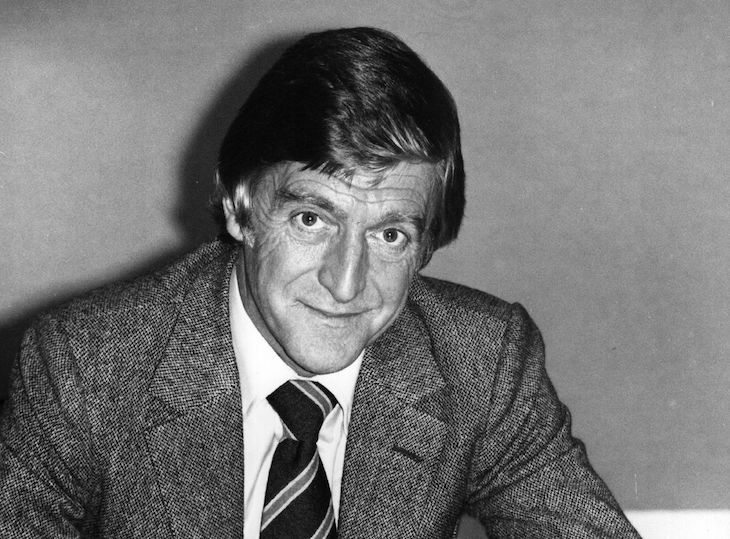Two or three years ago, the Tory MP Jonathan Gullis was ridiculed for describing himself as ‘someone who grew up on Dad’s Army and Porridge and loves those traditional programmes of the past’, even though he was born in 1990. The suggestion was that if you weren’t old enough to vote when Tony Blair left office, then it was rather strange to retain a fondness for sitcoms which completed their original runs in the late seventies. This is not right, however. I know from personal experience that if you were raised in a household with traditional media tastes then even an eighties and nineties childhood – before the fragmentation of audiences driven by digital TV and the internet – could leave you with an enduring affection for the classic shows and personalities of a previous era. Morecambe and Wise, Frank Spencer, Fawlty Towers, The Good Life, and so on.
Above all, Parkinson had a genuine interest in people and their lives – a kind of practical humanism
One such personality, of course, was Sir Michael Parkinson, who has died aged 88. Even when his show was on a long hiatus, Parky seemed to be a constant presence on TV in my childhood.
It almost feels wrong to call Parkinson a chat show, thereby placing it in the same category as its contemporary successors. Looking back at his interviews from the vantage point of 2023, particularly those from the original run from 1971-82, you are immediately struck by a seriousness and sense of calm that is missing from almost any modern television interview show you care to name. The guests are given space and time to formulate their thoughts, and generally express themselves with precision and eloquence. Unlike certain modern interviewers, Parkinson not call attention to himself with giggling innuendoes, nor did he indulge in laboured attempts to elicit intimate revelations. Even the audience maintained a certain decorum; they applauded and laughed occasionally, but there was no whooping and hooting.
Now you might say that Sir Michael was playing on easy mode in that first run. For one thing, his guests were typically not on a promotional tour. He was not bound by the need to focus on their new project, as his modern counterparts so often are, but could simply explore their lives and experiences. It was also true that he had a consistently excellent calibre of interviewee: Bette Davis, Alec Guinness, Peter O’Toole, Muhammad Ali, Fred Astaire, John Betjeman, Yehudi Menuhin. Many of these people had lived remarkable lives, and had been part of extraordinary world events. David Niven, for example, had fought in the second world war. Many had grown to maturity in a world before television and modern communications and so had a noticeable comfort with silence and reflection. Their speech is unhurried and considered; their often-idiosyncratic accents are resonant of long-vanished worlds.
All that said, Parkinson brought his own gifts to the far from straightforward task of interviewing. It maybe helped that his own pre-media career had been varied; a decent amateur cricketer, a print journalist who joined the trade straight from school, and later an army officer. His questions could be a little long-winded or digressive, but he knew when to stop and listen. He knew how to elicit more detail without seeming intrusive, and he had the sensitivity to realise when a line of questioning was not going anywhere. There is a refreshing lack of gimmickry and noise.
Above all, he had a genuine interest in people and their lives – a kind of practical humanism. This shines through not just in Parkinson, but in his stint on Desert Island Discs in the 1980s, and his decade-long presenting gig on Radio 2. You always had the sense of a well-rounded individual with a breadth and depth of interest in the world – he was, for example, a knowledgeable and enthusiastic fan of jazz. There is an old episode of the Test Match Special feature known as ‘The View From The Boundary’, in which the tables are turned and Parkinson is interviewed by that other master of the spoken word, Brian Johnston. Parkinson’s passion for cricket is almost palpable, and he speaks about the game and its legends with an unselfconscious delight that is somehow very moving.
The death of Parkinson seems emblematic, in a way, of the passing of a whole generation of broadcasters, and the disappearance of a serious and reflective approach to the art of interviewing in mainstream media. Nevertheless, the rise of YouTube and other video platforms seems to have reinvigorated the intelligent longform interview. Perhaps that is where his approach and his spirit will live on.






Comments